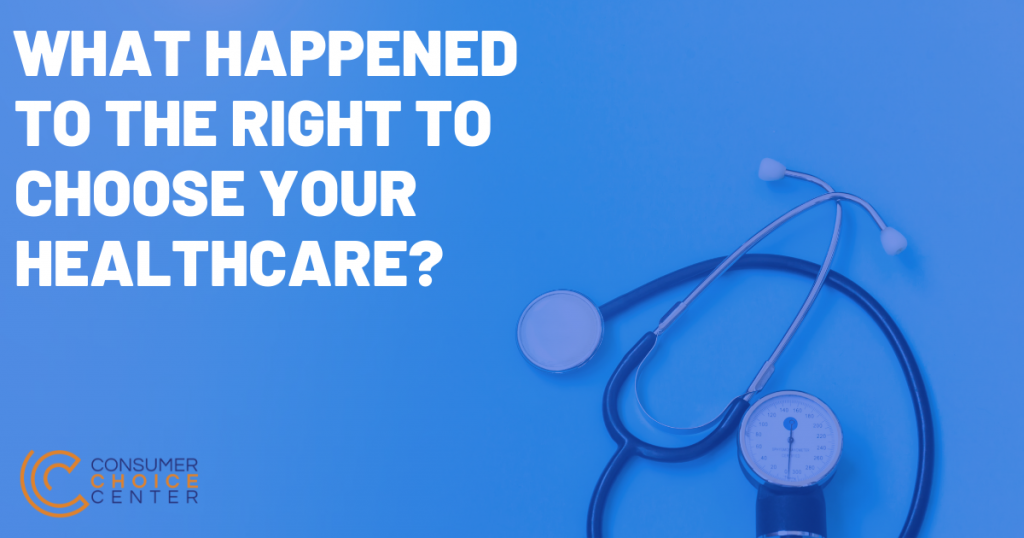
From atop the lecterns at the Democratic presidential debates and the White House, a common trope is dismantling and rejiggering how healthcare is delivered in America.
For the left, the emphasis is on expanding who can access government-backed health insurance programs while cutting off the role of the private sector. On the right, President Trump is looking to import drugs and pharmaceutical price controls from abroad.
Missing in both of these visions is the essential component that governs every other sector of the economy: the freedom to choose.
Much like housing, transportation, and education, it’s clear that the entire healthcare sector needs disruption.
We need out-of-the-box thinking, innovation, and on-demand delivery that will bring costs down for ordinary people. It’s this formula that has empowered millions to rise out of poverty, make a decent living for their families, and expand consumer choice to makes their lives better.
But both the Democrats and Trump are leading Americans astray on what really matters when it comes to healthcare.
Sens. Bernie Sanders, Elizabeth Warren, Cory Booker, and Kamala Harris have serious proposals to totally ban the private healthcare market in favor of a “Medicare For All” system. That means every American would be thrown into the government insurance program reserved for our seniors.
All administration, billing, reimbursement claims, and hospital contracts for over 350 million people would be handled by the federal government. For a country as unique, diverse, and large as the United States, this just couldn’t be carried out effectively. The CBO’s analysis of a single-payer system admits that new taxes and an entirely new administrative bureaucracy would take years to implement.
Such plans would make it illegal for Americans to choose the type of healthcare coverage that fit them best, depriving them of fundamental choices.
This makes two grandiose and flawed assumptions. One, that a top-down government reorganization of insurance and health services would be the best method to deliver healthcare, and two, that the individual consumer cannot be trusted to make decisions about their care. That is wrong.
People choose different healthcare plans depending on their employment situation, their age, or their lifestyle.
Many younger working people, such as myself, don’t have comprehensive insurance because it doesn’t make economic sense. We’d rather pay out of pocket for small expenses and use high-deductible disaster insurance when necessary. The young and healthy tend to shy away from the large insurance plans for these very reasons.
For the 8.8 percent of Americans without health insurance, would they benefit from a mass reorganization of the system that would offer the care reserved for our seniors if the cost comes in the form of higher taxes and less consumer choice?
The same applies to Trump’s well-intended but flawed plans on importing drugs from single-payer systems around the world.
The reason pharmaceutical drugs are more expensive has more to do with subsidies than cost. Most drugs are born from innovative American firms but are subsidized greatly or negotiated for lower rates by governments who import them. Firms can afford this because it’s offset by American prices, meaning the rest of the world is freeriding on American innovation and intellectual property.
They achieve this by reducing access and choice. It’s no secret that the lion’s share of pharmaceutical drugs are available in the U.S. while they’re unavailable in the countries that refuse to pay for them. So yes, the prices of drugs may be cheaper in Canada or Norway, but the supply and choices are lacking. Do we want fewer choices of drugs for lower costs or more choices and prices at market rate?
What matters most when it comes to our personal health is the freedom to choose. Whether that it’s our doctor, insurance program, or drugs we buy, Americans want to be able to pick what works best from them. Grandiose plans that seek to completely reorganize how many taxes we pay and how we receive care would severely restrict that.
That may be a well-intended path, but one that millions of Americans are right to reject.
Yaël Ossowski is deputy director of the Consumer Choice Center
Published in the Chicago Tribune: https://www.chicagotribune.com/lifestyles/health/sns-tns-bc-healthcare2-commentary-20190815-story.html
Published in Globe Gazette: https://globegazette.com/opinion/columnists/commentary-what-happened-to-the-right-to-choose-your-health/article_b941a988-7864-51e5-98e2-5e987626ce16.html?utm_source=dlvr.it&utm_medium=twitter
Published in Duluth News Tribune: https://www.duluthnewstribune.com/opinion/columns/4636779-National-View-Column-Americans-deserve-the-right-to-choose-their-health-care


